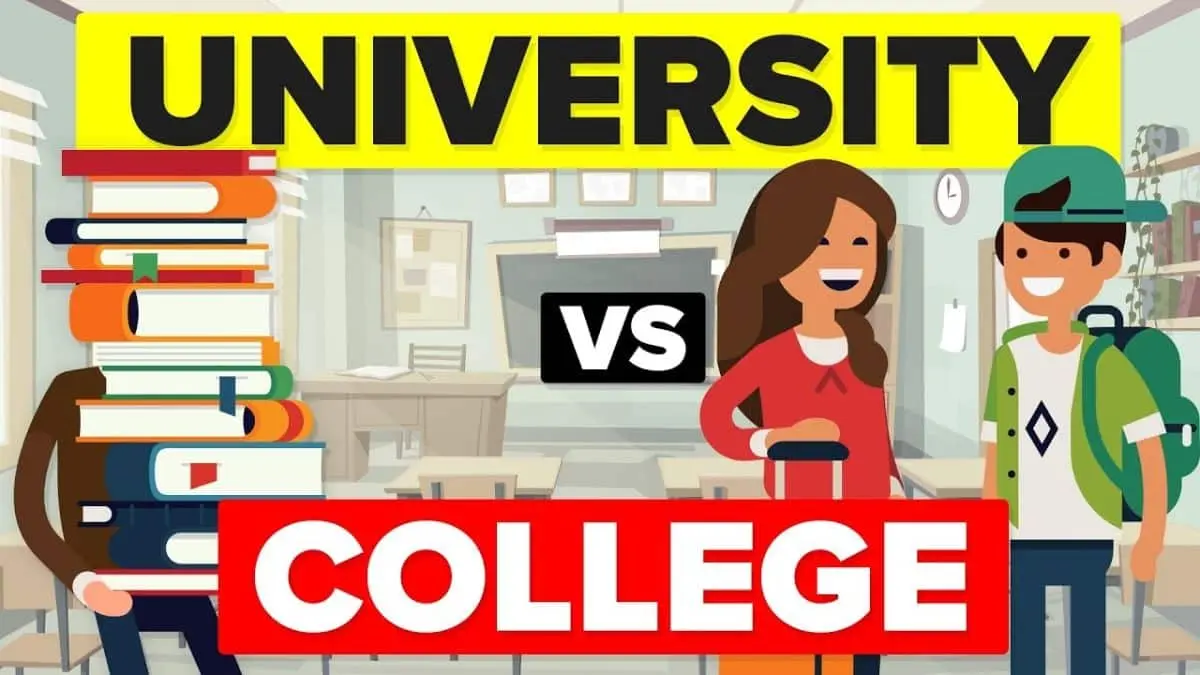- These institutions often emphasize teaching over research and offer smaller class sizes, which can result in more person…
- Research Opportunities: Colleges might offer research opportunities, but these are generally more limited both in scope…
- University faculty may balance both teaching and their own research agendas, which can affect their availability and int…
- Yes, many students start their education at a college, especially community colleges, and later transfer to a university…
- Do universities have more extracurricular activities than colleges?
- Is it more expensive to attend a university than a college?
Choosing between a college and a university is one of the first major decisions that prospective students face as they transition from high school to higher education. While the terms “college” and “university” are often used interchangeably, they represent distinct paths with unique opportunities and characteristics. Understanding Difference Between College and University is crucial for students and their families as they navigate the complex landscape of post-secondary education.
In this Blog post, we’ll explore the nuanced distinctions between colleges and universities, shedding light on each institution’s size, scope, degree offerings, campus life, and more. Whether you’re a student trying to decide which path is right for you, a parent aiming to guide your child, or simply curious about the structural variances in higher education, this guide will provide clear, comprehensive insights. Our goal is to demystify these terms to help you make an informed decision that aligns with your educational and career objectives.
Definitions and Basic Differences
When deciding where to continue your education, understanding the terms “college” and “university” is fundamental. Despite their frequent interchangeable use in casual conversation, these terms have specific meanings and implications within the education system.
Definitions:
- College: Traditionally, a college is an educational institution that focuses primarily on undergraduate studies. In the United States, colleges may be either standalone institutions offering bachelor’s degrees or community colleges offering associate degrees and certificates. These institutions often emphasize teaching over research and offer smaller class sizes, which can result in more personalized attention for students.
- University: A university is typically a larger institution that offers both undergraduate and graduate degrees, including master’s and doctoral programs. Universities are usually made up of various colleges—such as a college of arts and sciences, college of business, or college of engineering—each focusing on a broad range of disciplines. These institutions often have a significant focus on research, with resources devoted to supporting scholarly and scientific studies.

Basic Differences:
- Degree Levels Offered:
- Colleges often focus solely on undergraduate degrees, such as associate’s and bachelor’s degrees.
- Universities provide a broader range of programs, including undergraduate, graduate, and postgraduate degrees.
- Size and Scope:
- Colleges are typically smaller and may offer a more intimate campus environment, which can be beneficial for students seeking community and direct access to faculty.
- Universities usually have larger campuses, more extensive facilities, and a wider range of extracurricular opportunities, appealing to students looking for a broad and diverse educational experience.
- Research Opportunities:
- Colleges might offer research opportunities, but these are generally more limited both in scope and resources.
- Universities are research-intensive environments where students and faculty might engage in high-level research, often with state-of-the-art facilities and substantial funding.
- Faculty Focus:
- College faculty are often primarily focused on teaching and mentorship.
- University faculty may balance both teaching and their own research agendas, which can affect their availability and interaction with students.
Should You Attend a College or a University?
The right choice between a college and a university ultimately hinges on your individual academic ambitions and career aspirations. It’s also crucial to reflect on your learning preferences and what you aim to achieve from your educational journey.
If you’re drawn to a niche area of study, a college might suit you perfectly. Colleges often offer the advantage of smaller class sizes, which means you’ll likely enjoy more direct interaction with your professors—a big plus if you thrive in a more intimate learning environment.
On the other hand, if your goals include pursuing advanced degrees or engaging in research, a university might be a better fit. While universities tend to have larger classes at the undergraduate level, which might limit professor-student interaction, they are well-suited for those who are independent learners and can leverage other resources like tutoring centers or study groups.
For those considering postgraduate studies, universities typically offer smaller class sizes at this level. This environment allows for closer relationships with faculty, who can act as mentors in roles such as teaching assistants, research assistants, or thesis advisors.

FAQs
As you weigh the pros and cons of colleges versus universities, you may have additional questions. Below are some frequently asked questions along with their answers to help clarify common concerns:
Frequently Asked Questions:
- What is the better choice for getting a job, a college or a university?
- Both can be excellent choices, depending on your career goals and the specific program you choose. Universities might offer more specialized programs and advanced degrees, which can be advantageous in fields requiring such qualifications. Colleges, particularly those with strong ties to local industries, can be great for practical, career-focused training that leads directly to employment.
- Can I transfer from a college to a university?
- Yes, many students start their education at a college, especially community colleges, and later transfer to a university to complete their bachelor’s degrees. It’s important to ensure the credits will transfer; consulting with academic advisors from both institutions can help streamline this process.
- Do universities have more extracurricular activities than colleges?
- Typically, yes. Due to their larger size and broader student base, universities often offer a wider variety of clubs, sports, and other extracurricular activities. However, colleges also provide opportunities for involvement, which can be more personalized to the smaller student community.
- Is it more expensive to attend a university than a college?
- Generally, universities can be more expensive than colleges due to their larger scale, research facilities, and the breadth of courses offered. However, financial aid, scholarships, and in-state tuition options can significantly impact the final cost.
Also Read: Difference Between Books and Journals



